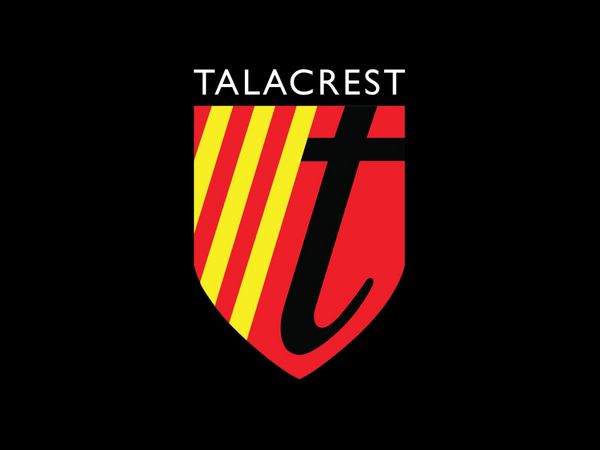MERCEDES-AMG GT BLACK SERIES IS FASTEST PRODUCTION CAR ON THE NÜRBURGRING-NORDSCHLEIFE
How close the new Mercedes-AMG GT Black Series (fuel consumption combined: 12.8 l/100 km; CO2 emissions combined: 292 g/km)[1] actually is to motorsport has now been impressively demonstrated by GT3 racer Maro Engel on the Nordschleife of the Nürburgring. With an officially measured and notarized certified time of 6:43,616 min for the 20,6 kilometre-long track (measured without the straight at track section T13) and 6:48,047 min for the 20,832 kilometre-long total track (measured with the straight at track section T13), the new V8 meteor is placed in the top group of the street-legal “sports cars” category and number one among the fully standard, unmodified models.
Maro Engel made full use of all the possibilities offered by the new Mercedes-AMG GT Black Series as standard: such as the most powerful AMG V8 series engine ever with 537 kW (730 hp), the sophisticated aerodynamics and extensive suspension adjustment options. For example, the front splitter made of visible carbon fibre was extended to the “Race” position, and the lower and upper wing blades of the rear spoiler were each adjusted in the middle position. The adjustable AMG coilover suspension with adaptive adjustment damping was lowered by five millimetres at the front and three millimetres at the rear to further enhance the venturi effect of the front diffuser. The camber was adjusted to the maximum possible values of negative 3.8 degrees at the front axle and negative 3.0 degrees at the rear. In the case of the adjustable anti-roll bars, racing professional Engel opted for the hardest of the three possible settings, and the 35-year-old adjusted the nine-stage AMG traction control between positions six and seven -depending on the section of the track. AMG GT Black Series customers can also take advantage of all these settings and variations.
This also applies to the MICHELIN Pilot Sport Cup 2 R MO tyres with “soft compound,” which are completely standard equipment and were developed in collaboration with development partner Michelin especially for the top sports car in the AMG GT series. The highest possible level of safety was ensured not only by the standard AMG ceramic high-performance composite brake system, but also by the Track Package with rollover protection system and four-point safety belts offered as standard equipment.
“That was a really impressive ride,” said Maro Engel after completing the record lap. “With speeds of up to almost 270 km/h in the Kesselchen section of the track or well over 300 km/h on the long Döttinger Höhe straight, the AMG GT Black Series is significantly faster than my GT3 race car. To finally drive around the Nordschleife in 6:48.047 minutes with a production road car in these track conditions is really awesome. Like my GT3 race car, the AMG GT Black Series offers a lot of adjustment possibilities, all of which enabled me to create a setup that was tailor-made for me.”
Also in terms of aerodynamic efficiency, the Mercedes-AMG GT Black Series takes a great deal from the race car.
A direct derivation from motorsport, for example, is the carbon-fibre hood with two large exhaust outlets. These specifically guide the warm air that flows from the slanted radiator setup out of the engine compartment. This increases overall downforce, as does the sophisticated rear wing concept and the largely enclosed underbody.
“It's really impressive how much downforce the Black Series generates and how confident and reliable it can be driven, even at the absolute limit. My hat is off to the developers from Affalterbach for what they have put on wheels here. And I'm very pleased that I was able to demonstrate these fascinating engineering skills with this great lap time,” said Engel.
Just as they were for AMG development engineer Demian Schaffert, who set a new lap record with the Mercedes-AMG GT 63 S 4MATIC+ (fuel consumption combined: 12.5 l/100 km; CO2 emissions combined: 286 g/km)1 on the same day, the conditions were not quite ideal for Maro Engel either. Because when the GT3 professional drove through the light gate of the timing system on November 4, 2020 at 5:02 p.m., not only were 20.832 kilometres of Green Hell behind him in the dim light – the GT3 professional also set the fastest time at an outside temperature of seven degrees Celsius and ten degrees Celsius on the asphalt. In addition, some passages of the extremely demanding track were not yet totally dry.
The fast lap times were precisely measured by neutral experts from “wige SOLUTIONS”. An independent notary also certified the condition of the vehicle as well as the measurements.
Click here to watch the drive on video
Background:
Why there are two differently timed laps on the Nürburgring-Nordschleife
The Nürburgring-Nordschleife is regarded as the most difficult racetrack in the world and is included in every new development by Mercedes-AMG. A record lap is therefore the most demanding test of the qualities of a sports car. The times are determined for two track alternatives – 20.6 and 20.832 kilometres long.
Since 1997, the 20.6-kilometre circuit has been the measure of all things. The specialist magazine sport auto from the Motor Presse Stuttgart publishing house drives this circuit as part of their so-called “Supertest”. For historical reasons, the short straight at the T13 grandstand – from the turnoff from the Nordschleife to the Grand Prix circuit to the exit of the Grand Prix circuit onto the Nordschleife – was not included in the timing. The starting line is therefore at the end of the T13 grandstand in a northerly direction and the finish line is at the beginning of the T13 grandstand in a southerly direction. Therefore, no complete lap is measured after the flying start. The total length of the course is exactly 20.6 kilometres.
In 2019 the official Nürburgring lap was added. It was organised by the operating company “Nürburgring 1927 GmbH & Co. KG” and is 232 metres longer, because the start and finish line are identical here, also on the T13 section, so a full Nordschleife lap of 20.832 kilometres is driven and measured with a flying start.
Numerous conditions must be met for both record times to be recognised: In addition to timekeeping with calibrated photoelectric sensor technology, official record attempts and attempts to achieve a lap time are always accompanied by a notary. In addition to monitoring the timekeeping, the vehicles and the tires are also inspected and approved by the notary. The classification of the vehicle classes is based on the official categories of the German Federal Motor Transport Authority (“Kraftfahrtbundesamt” KBA).





















